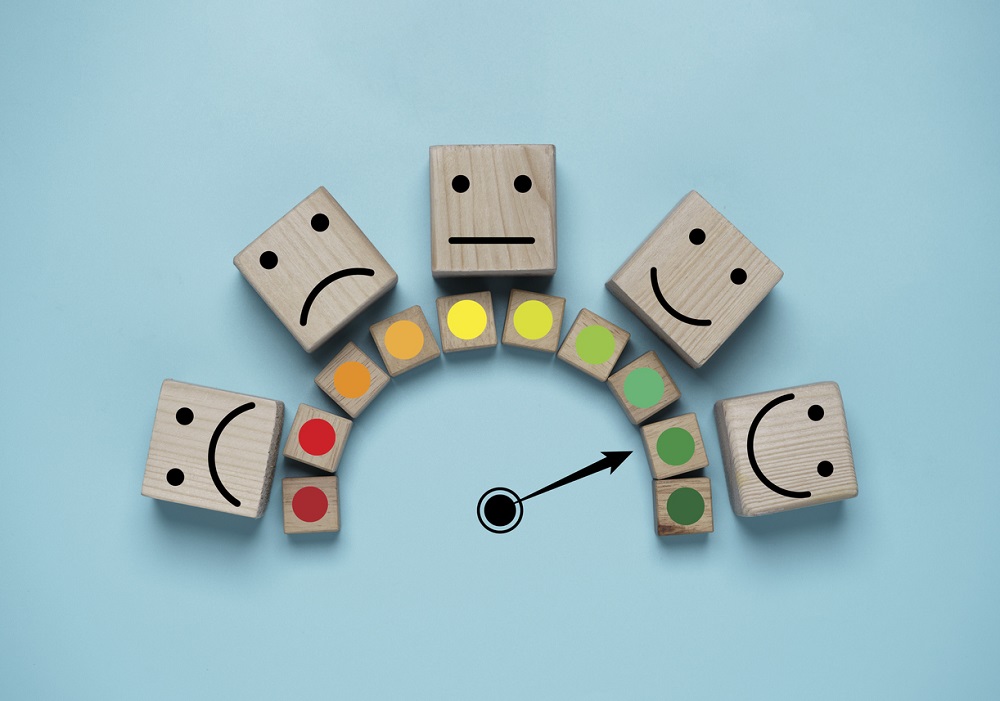“When it comes to life the critical thing is whether you take things for granted or take them with gratitude.” Author and journalist G. K Chesterton.
Genuine gratitude, as opposed to toxic positivity, is a powerful mindset. It can make you feel more empowered, resilient, altruistic, and happier in your work and personal life. So what’s the story behind mindful gratitude, and how might it help you improve your performance?

Defining genuine gratitude
Gratitude, also known as thankfulness, is the positive feeling of appreciation we enjoy when someone – or life in general – is kind to us. In this context kindness can mean support, gifts, favours, support, love, achievements and generosity, all of which naturally make us feel good.
Influential enough to play a part in several major religions, gratitude sits at the heart of ancient and modern philosophy. It’s also the driving force behind many of today’s popular positive thinking theories and tools.
About toxic positivity
Genuine gratitude is different from toxic positivity, the belief that however awful things may seem you have to stay positive. While positivity has many benefits, the toxic version rejects difficult emotions, forcing us to feel positive when it is neither realistic nor helpful.
We all have painful and unpleasant experiences that affect our mood and perspective. The associated emotions might not feel good, but they need to be experienced honestly and openly. Accepted and worked with, to protect our mental health.
The problem with toxic positivity is that it denies the survival emotions we’ve evolved to feel over millions of years, which we still have for a very good reason. We are wired for survival and threat. Some of our more negative emotions, like fear or anger or grief are needed in certain situations. Without them we might deny ourselves the support we need to cope with what’s happening. The brain is wired to see negativity first and to stay alert to the risks around us.
Sometimes, these evolutionary pathways can mean that we get stuck in the habit of overreactive fight, flight, or freeze. We don’t easily access positive emotions, acknowledge genuine kindness, or digest words of encouragement. We gloss over them, operating too anxiously to appreciate many of the good things around us.
How genuine gratitude creates a better life

Gratitude can mitigate against this tendency. It generates positive emotions and reduces negative feelings. People who feel more gratitude report higher levels of wellbeing. They are often happier, less depressed and less stressed. They enjoy their lives and relationships more and feel more in control of their experiences. The more grateful we are, the less we rely on negative coping mechanisms like blaming ourselves and avoiding situations we’re not comfortable with.
Gratitude can fuel a positive experience of personal growth and help us discover more of a sense of purpose in life. It can create more self-acceptance and boosts constructive coping skills. It means we’re more comfortable asking others for help, and we’re better at reinterpreting everyday negative experiences in a more balanced and realistic way.
Gratitude even impacts our physical health in unexpected ways. We sleep better, suffer fewer visits to doctors and hospitals, and we eat more healthily. There’s even evidence that gratitude comes with some benefits to our cardiovascular health.
How to develop a gratitude habit

An attitude of thankfulness can be incredibly helpful in life. It lifts us outside our problems, helps us see the bigger picture, and bounce back from challenges that could otherwise flatten us. So how might you develop a gratitude habit of your own and feed a stance on life that’ll filter into your work to support resiliency?
Gratitude means coming from a place of abundance, not scarcity. It’s about confidence, not fear, and it’s an attitude we choose. When you choose to be grateful, you give thanks, even on days when it feels like nothing is going right.
To make it a sustainable habit, gratitude needs to exist outside our own circumstances as our emotional default position, enabling us to find the silver lining and be thankful for the things that are going right. It’s about being thankful for the things you have rather than focusing on the things you don’t have.
As the author and lifestyle entrepreneur Lewis Howes says, “If you concentrate on what you have, you’ll always have more. If you concentrate on what you don’t have, you’ll never have enough.”
When you keep a gratitude journal you effectively help to rewire your brain to reflect on the things, you’re grateful for and just three things a day is enough to feel the difference. When you celebrate the small things on the journey to the big things, motivation stays higher. When you openly express gratitude, rather than just feeling it, you experience more positive emotions. You are more likely to help others and feel more connected with humanity.
Life flows more easily…
Concentrating on long term, values-led goals, means you’re less likely to get tripped up by short term problems. Being thankful for the little things reveals life’s richness along the way. It makes the good things feel more real, more powerful. When you foster a habit of gratitude, actively observing your thoughts, you can let go and release stress more easily. You can enhance your focus and sense of calm. You gain more perspective. You’re not so reactive and life flows more easily.
About us:
We create the space for leaders to step back, think clearly, and navigate complexity with confidence. By sharpening the narrative that drives decisions, teams, and performance, we help leaders move forward with clarity and impact. Our approach blends deep listening, incisive challenge, and commercial focus—strengthening leadership at every level, from business transformation to boardroom decisions.
“We share resources that help coaches deepen their practice and expand their impact. The articles on this site are designed to spark fresh thinking, offer practical tools, and support the continuous growth of coaches at every stage. “
Jude Elliman
Founder
Our Core Approach:
We work with leaders to sharpen their thinking, strengthen their leadership, and navigate complexity with confidence. Our approach is built around three core areas:
Narrative Coaching – Working with the stories that shape leadership, teams, and organisations.
Commercial Focus – Cutting through complexity to drive clear, strategic decisions.
Challenge & Space – Asking the right questions while creating the space to reflect and grow.
Through this, we help leaders drive transformation, align teams, and make high-stakes decisions with clarity and impact.
